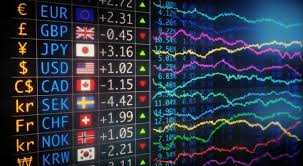
In the ever-evolving world of finance, forex software trading Trading Uganda stands at the forefront of innovation, particularly in Forex software trading. The foreign exchange market (Forex) has become one of the most lucrative arenas for traders globally, allowing individuals and institutions to buy and sell currencies on a vast scale. As market dynamics continue to shift, the role of software in facilitating effective Forex trading has never been more crucial.
Understanding Forex Trading Software
Forex trading software is a digital platform that enables traders to engage in currency trading. This software allows users to access real-time market data, conduct technical analysis, automate trading strategies, and manage their trading accounts effectively. The significance of robust trading software cannot be understated, as it directly impacts a trader’s ability to make informed decisions.
The Key Features of Forex Trading Software
When selecting Forex trading software, it is essential to consider several critical features:
- User-Friendly Interface: A clean, intuitive UI facilitates easier navigation and reduces the learning curve for new traders.
- Real-Time Data Access: Instant access to market data and charts helps traders make timely and informed decisions.
- Technical Indicators: A variety of built-in technical indicators allows traders to analyze currency pairs and forecast future price movements.
- Automated Trading Capabilities: The ability to set up and execute automated trading strategies can be a game-changer for time-constrained traders.
- Risk Management Tools: Effective risk management tools, such as stop-loss and take-profit orders, help traders protect their investments.
- Multi-Device Access: Flexibility to access the software from various devices (computers, tablets, smartphones) ensures that traders can stay connected and responsive, regardless of their location.
Popular Forex Trading Platforms
Many platforms exist to aid Forex traders in navigating the currency markets effectively. Some of the most popular platforms include:
- MetaTrader 4 (MT4): Widely recognized for its robust functionality, MT4 is favored by many Forex traders for its technical analysis tools and automated trading capabilities.
- MetaTrader 5 (MT5): The successor to MT4, MT5 offers additional features, including more technical indicators and an extended range of asset classes.
- NinjaTrader: This platform is known for its comprehensive trading tools, particularly appealing to advanced traders who utilize algorithmic trading strategies.
- cTrader: Focused on providing a superior trading experience, cTrader offers advanced charting and user-friendly features, making it popular among Forex traders.
Strategies for Effective Forex Software Trading
Employing effective strategies is paramount in Forex trading. Here are some strategies worth considering:
1. Day Trading
Day trading involves buying and selling currency pairs within a single trading day, minimizing the risk associated with overnight market fluctuations. Traders often rely on short-term technical analysis to make quick decisions.

2. Swing Trading
For those who prefer a medium-term approach, swing trading is a viable option. This strategy involves holding positions for several days or weeks, capitalizing on market “swings” or trends.
3. Scalping
Scalping is a high-frequency trading strategy aimed at making small profits from minor price changes. Traders employing this strategy typically enter and exit positions within minutes or seconds.
4. Trend Following
Trend-following strategies capitalize on existing market trends by using indicators to identify the direction of price movements and making trades that align with those trends.
Leveraging Technology in Forex Trading
The advent of technology has transformed the Forex trading landscape. With tools such as artificial intelligence (AI) and machine learning, traders can now analyze vast quantities of market data to identify patterns and trends that may not be immediately visible. Furthermore, algorithmic trading allows users to set parameters for their trades, significantly reducing the stress and time involved in manual trading.
Choosing the Right Broker for Forex Trading
Your choice of broker is crucial to your Forex trading success. Here are some factors to consider:
- Regulation: Ensure your broker is regulated by a reputable authority to guarantee safety and transparency.
- Trading Costs: Look at spreads, commissions, and any additional fees that may impact your profitability.
- Customer Support: A responsive and knowledgeable support team can help resolve any issues that arise quickly.
- Range of Currency Pairs: A broker offering a broad array of currency pairs provides more trading opportunities.
Common Pitfalls in Forex Trading
While Forex trading offers myriad opportunities, it’s vital to be aware of potential pitfalls:
- Overtrading: Trading too frequently can lead to high transaction costs and emotional stress.
- Lack of a Trading Plan: Entering trades without a well-defined strategy increases the risk of losses.
- Emotional Trading: Allowing emotions to dictate trading decisions can lead to irrational choices and significant losses.
Conclusion
Forex software trading has revolutionized the financial landscape, offering traders accessibility, flexibility, and powerful tools for making informed decisions. By understanding the features of effective trading platforms, employing sound strategies, and avoiding common pitfalls, traders can enhance their success in the Forex market. As you delve deeper into the world of Forex trading, remember that continuous learning and adaptation are crucial components of a successful trading journey.

